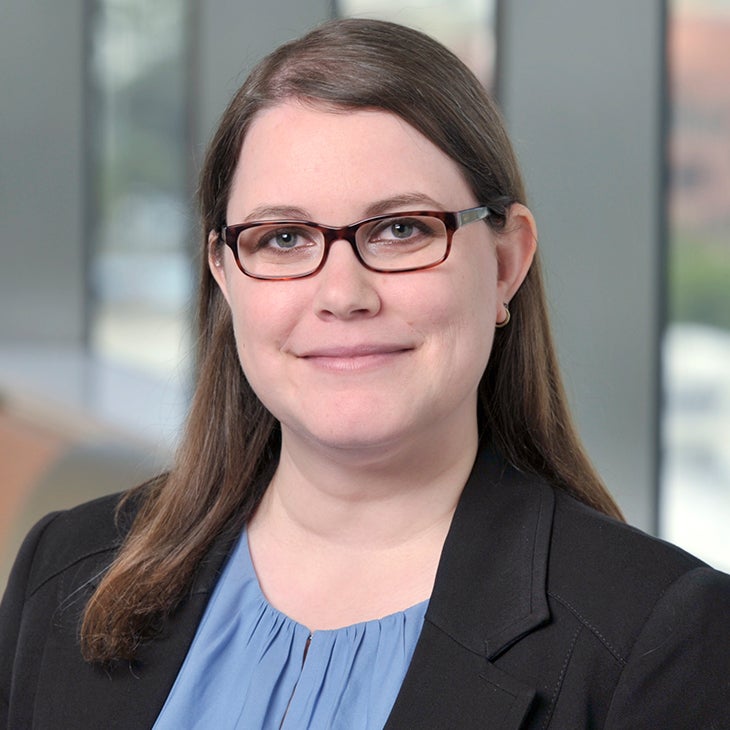Significant Post-ACA International Developments

On March 16, 2018, the U.S. Court of Appeals for the D.C. Circuit released its hotly anticipated decision in ACA Int’l v. FCC. The decision—impacting a wide range of industries (including financial services, retail and healthcare)—limited the FCC’s overly expansive definition of “automatic telephone dialing system” (ATDS) and vacated its ruling on reassigned telephone numbers, but declined to set aside other rulings governing calls and texts to consumers.
Through our TCPA Connect newsletter, Manatt continues to track developments surrounding this formative decision, guiding you through its interpretation issues and overall impact on litigation in the Telephone Consumer Protection Act (TCPA) world. Manatt’s TCPA team monitor and report on noteworthy federal district- and appellate-level decisions interpreting, applying or otherwise evaluating ACA Int’l, developments in the recent Ninth Circuit case of Marks v. Crunch San Diego LLC which appeared to contravene ACA Int’l, and significant changes coming out of the FCC.
To read all of our previous coverage on post-ACA International developments please see:
The circuit split fueling uncertainty over the proper definition of an automatic telephone dialing system (ATDS) deepened this week as the U.S. Court of Appeals, Seventh Circuit, weighed in on the issue. The Seventh Circuit’s decision comes on the heels of last month’s Eleventh Circuit ruling, which similarly adopted a narrow reading of what constitutes an ATDS.
Authors
The uncertainty surrounding the proper definition of an automatic telephone dialing system (ATDS) remains as courts continue to issue differing opinions on the issue. Nearly two years after the D.C. Circuit’s landmark decision in ACA International (ACA) striking down the Federal Communications Commission’s (FCC) overly expansive 2015 definition, courts continue to debate whether ACA left prior FCC guidance intact, resulting in varying interpretations across the country of what constitutes an ATDS.
Authors
The recent trend of confusion and uncertainty surrounding the proper definition of an automatic telephone dialing system (ATDS) continues in full force as courts remain split on the issue. Nearly two years after the D.C. Circuit’s landmark decision in ACA International (ACA) striking down the Federal Communication Commission’s (FCC’s) overly expansive 2015 definition, courts continue to debate whether ACA left prior FCC guidance intact, resulting in varying interpretations across the country of what constitutes an ATDS.
Authors
While the Telephone Consumer Protection Act (TCPA) continues as a hotbed of consumer litigation, there is still much uncertainty surrounding the proper definition of an automatic telephone dialing system (ATDS) under the TCPA after the D.C. Circuit’s almost two-year-old landmark decision in ACA International (ACA), which struck down the Federal Communication Commission’s (FCC) previous overly expansive 2015 definition.
Authors
After a year marked with confusion surrounding the definition of what constitutes an automatic telephone dialing system (ATDS), courts remain split. While the flood of Telephone Consumer Protection Act (TCPA) litigation concerning this issue has slowed in recent months, courts continue to interpret the ACA International (ACA) decision from the D.C. Circuit in various ways. ACA struck down the Federal Communication Commission’s (FCC) 2015 ATDS guidance and the FCC has still declined to issue further guidance to clear up the debate. However, since the seemingly never-ending streak of litigation concerning whether ACA left prior FCC guidance intact and, as a result, whether systems constitute ATDSs has slowed considerably, perhaps the FCC will take the opportunity to comment.
Authors
Over a year after the ACA International (ACA) decision from the D.C. Circuit that changed the face of litigation in the Telephone Consumer Protection Act (TCPA) world by striking down the Federal Communication Commission’s (FCC’s) 2015 automatic telephone dialing system (ATDS) guidance, the courts remain split on what constitutes an ATDS, with no immediate relief in sight. However, the tide may be turning as the consistent and pervasive wave of case law interpreting ACA has slowed down considerably in the past month.
Authors
Well over a year has passed since the ACA International (ACA) decision from the D.C. Circuit changed the face of litigation in the Telephone Consumer Protection Act (TCPA) world by striking down the Federal Communication Commission’s (FCC) 2015 automatic telephone dialing system (ATDS) guidance, and courts remain hopelessly split on what constitutes an ATDS with no immediate relief in sight. Federal district judges are still issuing opinions interpreting ACA, with district courts in the Ninth Circuit consistently following the plaintiff-friendly decision Marks v. Crunch San Diego, and others either following Marks or, to a greater extent, the Second Circuit’s opinion in King v. Time Warner Cable and/or the Third Circuit’s opinion in Dominguez v. Yahoo, both of which arguably favor defendants (depending on the underlying facts, of course). The Second, Third and Ninth Circuits remain the only significant appellate-level opinions on ACA (though the Ninth Circuit just recently reaffirmed Marks in the Duguid v. Facebook case, and the FCC has yet to issue any guidance defining an ATDS in the post-ACA world.
Authors
One year after the ACA International (ACA) decision from the D.C. Circuit changed the face of litigation in the Telephone Consumer Protection Act world by striking down the Federal Communication Commission’s 2015 automatic telephone dialing system guidance, courts remain split on what constitutes an ATDS. This past month alone, there has been a flurry of ACA-related activity in the courts. To add fuel to the fire, the FCC has not issued any new guidance on the topic, thus leaving the TCPA litigation world in a state of confusion. Notably, at present we have had appellate-level opinions from only the Second, Third and Ninth circuits. However, the First Circuit got its first post-ACA ATDS decision coming from Massachusetts, so perhaps a decision from that appellate court may not be far behind. A little over half of the district court cases we have reported on have found that there was an ATDS when applying ACA, about a third have held that ACA invalidated all prior FCC orders defining an ATDS, and about one-fifth have found that human intervention was a deciding factor as opposed to just the 2015 order discussed in ACA. There still have been no district- or appellate-level cases defining an ATDS since ACA from the Fourth and, most notably, Fifth circuits, and while opinions from district courts in the Seventh Circuit experienced a slight uptick this past month, there are still surprisingly few opinions from courts within that circuit, considering the number of TCPA cases filed there. The district courts in the Second and Ninth circuits have led the way in issuing ATDS-related decisions, along with the district courts in the Eleventh Circuit where, for whatever reason, there still has been no appellate opinion post-ACA.
Authors
Months after the ACA International decision from the D.C. Circuit changed the face of litigation in the Telephone Consumer Protection Act (TCPA) world by striking down the Federal Communication Commission’s (FCC) 2015 automatic telephone dialing system (ATDS) guidance, courts remain split on what constitutes an ATDS—although the flurry of ACA-related activity in the courts has slowed somewhat in the past few months (which may be the result of the recent government shutdown)—and the FCC has not issued any new guidance on the topic, thus leaving the TCPA litigation world in a state of confusion.
Authors
Recently, one district court case from the Second Circuit, two district court cases from the Third Circuit, one district court case from the Eighth Circuit and one district court case from the Tenth Circuit (notably, the first from that circuit) have interpreted whether various dialing systems constitute an ATDS under post-ACA Int’l standards. There have been no new developments at the appellate level thus far after the Ninth Circuit’s opinion in Marks, and the recent government shutdown effectively halted FCC developments on this front.
Authors
This month in our continuing coverage of post-ACA Int’l developments, we cover one district court case from the Third Circuit, two cases from the Seventh Circuit, one case from the Eighth Circuit and one case from the Ninth Circuit, all which have interpreted whether a predictive dialer constitutes an ATDS under post-ACA Int’l standards and came to opposite conclusions.
Authors
At least one district court in the Ninth Circuit has refused to dismiss or strike the class allegations at the pleadings stage, on the basis of the expansive Marks. Meanwhile, district courts in the Second Circuit and Sixth Circuit threw out two TCPA cases following ACA Int’l, but for very different reasons.
The aftermath of the Marks decision is beginning to take shape, as evidenced by the opinion in the Ninth Circuit that applied the Marks definition. This expansive definition could encompass many more systems and devices that otherwise would not qualify as ATDSs under ACA Int’l alone. Furthermore, the district court opinions in the Second and Sixth circuits evidence the ongoing different approaches to interpreting ACA Int’l and highlight differing views on just what constitutes “capacity” to be an ATDS.
Authors
In addition to the long-awaited Marks v. Crunch San Diego, LLC case from the Ninth Circuit, there have been six district court opinions since the last full edition of the TCPA Connect to evaluate and apply the D.C. Circuit’s seminal opinion in ACA Int’l to define an automated telephone dialing system (ATDS). There were two cases from the Ninth Circuit, three from the Eleventh Circuit and one from the Third Circuit. The case law continues to show mixed results, although the decisions in this edition of the TCPA Connect lean ever so slightly in favor of plaintiffs.
Authors
As our regular readers know, Manatt’s TCPA compliance and class action defense team has been tracking and reporting on developments in the courts as well as in the government since the ACA International v. FCC decision earlier this year, in which the D.C. Circuit set aside the Federal Communications Commission’s (FCC) overly expansive definition of “automatic telephone dialing system” (ATDS or autodialer), among other things. As we predicted, over the past few months, the ACA decision has spurred confusion among the district courts and has led to various approaches not only to interpreting the binding effect of ACA but also to delineating the parameters of what constitutes an ATDS. On Sept. 20, 2018, the U.S. Court of Appeals, Ninth Circuit became the third appellate court to weigh in on this important discussion and issued its long-awaited opinion in Marks v. Crunch San Diego, LLC.
Authors
At the judicial level, courts across the country are interpreting and applying ACA Int’l in a variety of ways. For this edition of TCPA Connect, there were five district court decisions of note: two from the Third Circuit, one from the Sixth Circuit, one from the Ninth Circuit and one from the Eleventh Circuit.
Authors
At the government level, the FCC still has not weighed in, and in fact, a group of senators has recently sent a letter to FCC Chairman Ajit Pai, urging him and the FCC to take immediate action to protect consumers.
At the judicial level, while the opinions—including appellate decisions from the Second and Third circuits—initially came quickly, after the D.C. Circuit handed down its opinion, we have observed somewhat of a slowdown this past month. (However, we do not necessarily see this trend continuing, because many cases were stayed pending the D.C. Circuit’s opinion.) So, for this edition of TCPA Connect, there were only two district court decisions of note, both coming out of the Sixth Circuit and in favor of the defendants.
Authors
Four recent rulings on what constitutes an automatic telephone dialing system (ATDS), after the U.S. Court of Appeals, D.C. Circuit struck down the Federal Communications Commission’s (FCC) interpretation, have produced mixed results, indicating the courts are still working through interpretation issues stemming from the formative ACA International decision.
Author
Coming on the heels of the Third Circuit’s opinion in Dominguez, the Second Circuit issued what amounts to only the second federal appellate-level opinion thus far applying the D.C. Circuit’s important decision in ACA International to the Telephone Consumer Protection Act (TCPA) definition of an automatic telephone dialing system (ATDS). That case, King v. Time Warner Cable, Inc., was decided on June 29, 2018, as this edition of TCPA Connect was going to press.
Author
In a recent case on appeal from the Eastern District of Pennsylvania, the Third Circuit issued the first federal appellate-level opinion relating to ACA International in a putative TCPA class action. That case is Dominguez v. Yahoo, Inc., the opinion in which was filed on June 26, 2018.
Author
As of this edition of TCPA Connect, there have been over 20 decisions citing ACA International, each with varying degrees of treatment and analysis. However, only a handful of those have addressed whether the calling system at issue would be deemed an ATDS in accordance with the ACA International decision in any meaningful way, and while they all turn on the issue of “human intervention,” no clear trend has developed based on the opinions thus far.
Authors
The old adage “good things come to those to wait” showed itself to be true when on Friday, the U.S. Court of Appeals for the D.C. Circuit released its hotly anticipated decision in ACA Int’l v. FCC, just shy of 17 months after oral argument. The decision, impacting a wide range of industries, including financial services, retail and healthcare, set aside the Federal Communications Commission’s (FCC) overly expansive definition of “automatic telephone dialing system” (ATDS or autodialer) and its ruling on reassigned telephone numbers from 2015, but declined to set aside its rulings on revocation of consent and the scope of the exigent healthcare exemption applicable to wireless calls.
The opinion was immediately hailed as a positive outcome by Commissioners Michael O’Rielly and Brendan Carr and Trump-appointed Chairman Ajit Pai. While the decision is a win for business in many respects, it fell short of clarifying or establishing new standards, leaving room for further FCC guidance and/or judicial interpretation of the Telephone Consumer Protection Act (TCPA). In this special edition of TCPA Connect, we summarize the decision and analyze its likely impact.
Authors







